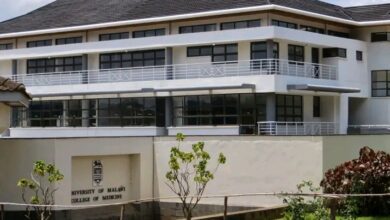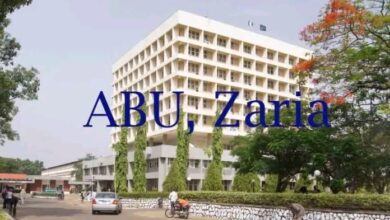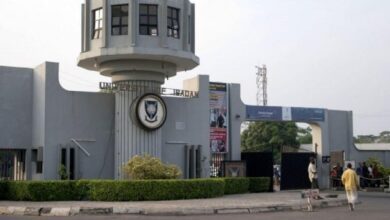Top 10 Colleges of Education in Nigeria for Arabic and Yoruba Studies

Nigeria, a nation rich in cultural diversity, boasts a vibrant linguistic landscape.
For students seeking to explore the intricacies of languages, particularly Arabic and Yoruba, choosing the right College of Education (COE) is crucial.
In this guide, we present the top 10 COEs in Nigeria renowned for their exceptional Arabic and Yoruba programs, offering a perfect blend of linguistic mastery and cultural understanding.
1. Federal College of Education, Zaria (FCE Zaria)
Located in the historical city of Zaria, FCE Zaria is a hub for Arabic and Yoruba studies. The college’s comprehensive programs focus on language fluency, cultural appreciation, and linguistic research.
Graduates from FCE Zaria are well-equipped to bridge language gaps and promote cultural exchange in various professional settings.
2. Adeyemi College of Education, Ondo (ACE Ondo)
Situated in Ondo State, ACE Ondo offers immersive Arabic and Yoruba education.
The college’s faculty members are experts in both languages, providing students with a deep understanding of language structures and cultural nuances.
ACE Ondo’s graduates emerge as proficient linguists, capable of preserving and promoting linguistic heritage.
3. Alvan Ikoku Federal College of Education, Owerri (AIFCE Owerri)
AIFCE Owerri, located in Owerri, stands out for its innovative Arabic and Yoruba programs. The college’s curriculum emphasizes language proficiency, linguistic research, and cultural studies.
Graduates from AIFCE Owerri are not only fluent in Arabic and Yoruba but also skilled in analyzing language dynamics, making them valuable assets in language preservation efforts.
4. Federal College of Education, Kano (FCE Kano)
FCE Kano, a leading institution in northern Nigeria, excels in Arabic and Yoruba education.
The college’s programs delve into linguistic intricacies and cultural contexts, preparing students for roles as language educators, researchers, or cultural consultants.
FCE Kano’s graduates are cultural ambassadors, promoting understanding between communities.
5. Kwara State College of Education, Ilorin (KWCOE Ilorin)
Located in Ilorin, KWCOE Ilorin provides specialized programs in Arabic and Yoruba studies. The college’s curriculum encompasses language proficiency, folklore, and cultural anthropology.
Graduates from KWCOE Ilorin are not only language experts but also well-versed in Yoruba traditions, enabling them to contribute significantly to cultural preservation initiatives.
6. Federal College of Education, Abeokuta (FCE Abeokuta)
FCE Abeokuta, situated in Ogun State, offers a vibrant learning environment for Arabic and Yoruba enthusiasts. The college’s programs cover linguistic theories, cultural studies, and practical language applications.
FCE Abeokuta’s graduates are proficient communicators, capable of preserving linguistic heritage and fostering cultural pride.
7. Federal College of Education (Special), Oyo (FCE Oyo)
FCE Oyo specializes in inclusive education, including Arabic and Yoruba programs.
The college’s tailored approach caters to students with diverse learning needs, ensuring a comprehensive understanding of both languages.
Graduates from FCE Oyo are not only linguistically proficient but also advocates for inclusive language education.
8. Michael Otedola College of Primary Education, Noforija (MOCPEN)
MOCPEN, located in Lagos State, offers a unique blend of Arabic and Yoruba studies.
The college’s practical orientation and industry-relevant curriculum prepare students for roles as language educators, translators, or cultural consultants.
MOCPEN’s graduates are well-versed in linguistic nuances, promoting accurate language usage and cultural understanding.
9. Federal College of Education (Technical), Bichi (FCET Bichi)
FCET Bichi, situated in Kano State, integrates technical expertise with Arabic and Yoruba education.
The college’s interdisciplinary approach equips students with diverse skills, enhancing their employability in technical language-related fields.
FCET Bichi’s graduates are skilled professionals, capable of leveraging their linguistic expertise in technical contexts.
10. Federal College of Education, Okene (FCE Okene)
FCE Okene, located in Kogi State, offers a stimulating environment for Arabic and Yoruba studies.
The college’s interactive teaching methods, cultural exchange programs, and emphasis on linguistic proficiency prepare graduates for roles as language educators, researchers, or cultural ambassadors.
FCE Okene’s graduates are versatile professionals, making significant contributions to language education and cultural preservation.
FAQs
What career opportunities are available after studying Arabic and Yoruba in Nigerian COEs?
Graduates can pursue careers as language educators, translators, interpreters, cultural consultants, researchers, or work in government agencies, international organizations, and tourism sectors, utilizing their expertise in Arabic and Yoruba languages.
Are there opportunities for internships or practical experiences during Arabic and Yoruba studies in Nigerian COEs?
Yes, many COEs facilitate internships, language exchange programs, and practical experiences with local communities, providing students with valuable hands-on experiences. These opportunities enhance linguistic proficiency and cultural understanding.
How can I apply for scholarships or financial aid to study Arabic and Yoruba in Nigerian COEs?
Scholarships and financial aid options vary by institution. Prospective students should visit the official websites of respective COEs or contact their admission offices for detailed information on available scholarships, grants, and financial assistance programs.
What is the importance of preserving indigenous languages like Yoruba in contemporary society?
Preserving indigenous languages like Yoruba is vital for cultural identity, heritage preservation, and intergenerational communication.
It fosters a sense of pride, strengthens cultural bonds, and ensures the transmission of traditional knowledge, stories, and values to future generations. Additionally, it enhances multicultural understanding and promotes diversity appreciation in society.





